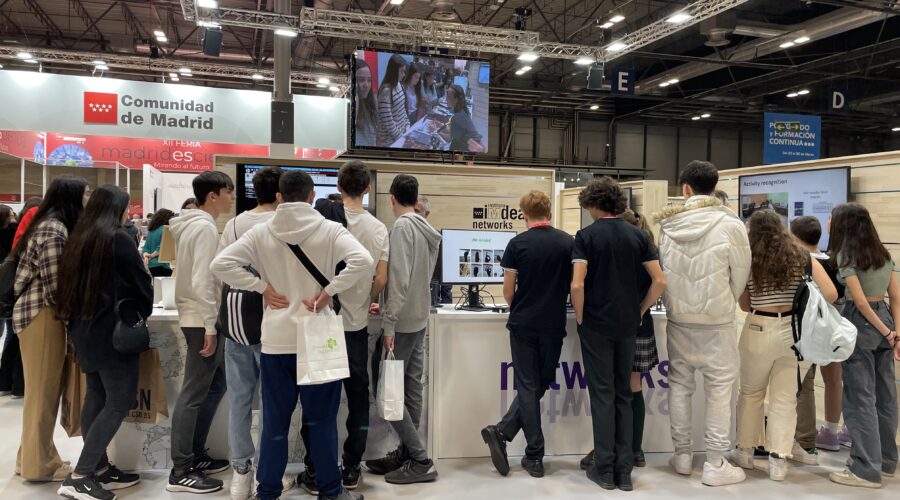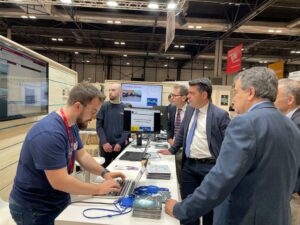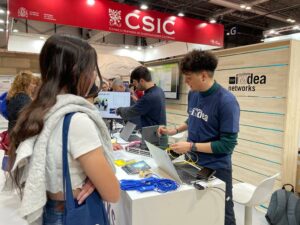IMDEA Networks

IMDEA Networks at the XII edition of Madrid is Science Fair
The public discovered how much they know about networks and learned how to protect their cybersecurity, among many other educational games
25 March 2023

Hundreds of people visited the IMDEA Networks stand at the Madrid is Science Fair which took place from Thursday, March 23rd to Saturday, March 25th at IFEMA’s Pavilion 5. The twelfth edition of the largest science outreach event held in Madrid and organized by madrimasd has been a complete success. During three intense days, the IMDEA Networks research team taught students of all ages and the general public how we do technology through dynamic games and very visual demos. We were also visited by the Vice-Minister of Universities, Science and Innovation of the Community of Madrid Fidel Rodríguez, the Vice-President of the Community of Madrid Enrique Ossorio, and the science disseminator Javier Santaolalla (who presented the first course of IMDEA’s collaboration with its platform Amautas). 
Our PhD student Alfonso Rodríguez has told the people who have visited us how much information the Internet has about them, from web pages where they appear to their social network profiles, emails, phone numbers, photos, and more. In addition, they have learned how to protect their privacy on the net with our cybersecurity game.
Orlando Martínez explained to the groups of students who approached the stand how devices such as a switch, a router, and fiber optic cables work, which make it possible for the Internet to reach home. He also talked about how we connect with other countries. Hint: there are undersea cables. And he revealed what happens if a shark bites one of those cables. Finally, they were able to put all their knowledge to the test with a Kahoot game.
 Research engineer Rafael Ruiz mentioned examples of wireless networks around us, such as a WiFi network or 5G. He showed them how millimeter band systems with 60GHz antennas work and how they differ from traditional wireless networks. In addition, the audience has discovered that millimeter band communications systems also serve to extract information from our environment, such as the location of a person or their activity, and how this technology could be applied in contexts of smart homes or for health cases such as monitoring breathing or fainting detection.
Research engineer Rafael Ruiz mentioned examples of wireless networks around us, such as a WiFi network or 5G. He showed them how millimeter band systems with 60GHz antennas work and how they differ from traditional wireless networks. In addition, the audience has discovered that millimeter band communications systems also serve to extract information from our environment, such as the location of a person or their activity, and how this technology could be applied in contexts of smart homes or for health cases such as monitoring breathing or fainting detection.
Those who visited our booth at the fair were also able to learn first-hand how to use the Network Scale-Up method of indirect surveys that ask about the number of contacts with a characteristic instead of reporting their own status. Researchers Antonio Fernández, Sergio Díaz and Juan Marcos Ramírez have pointed out that this is a highly scalable method that allows obtaining sensitive information at a low cost without affecting the privacy of the users. This method has been applied to monitor the evolution of the pandemic under the Coronasurveys project, as well as to estimate voting intentions in elections.
Finally, the audience was able to test the sign language translator created with artificial intelligence by our Postdoctoral researcher Elisa Cabana. In short, three days where we have been able to enjoy the best science at the service of society and with the clear objective of improving their lives.


Recent Comments